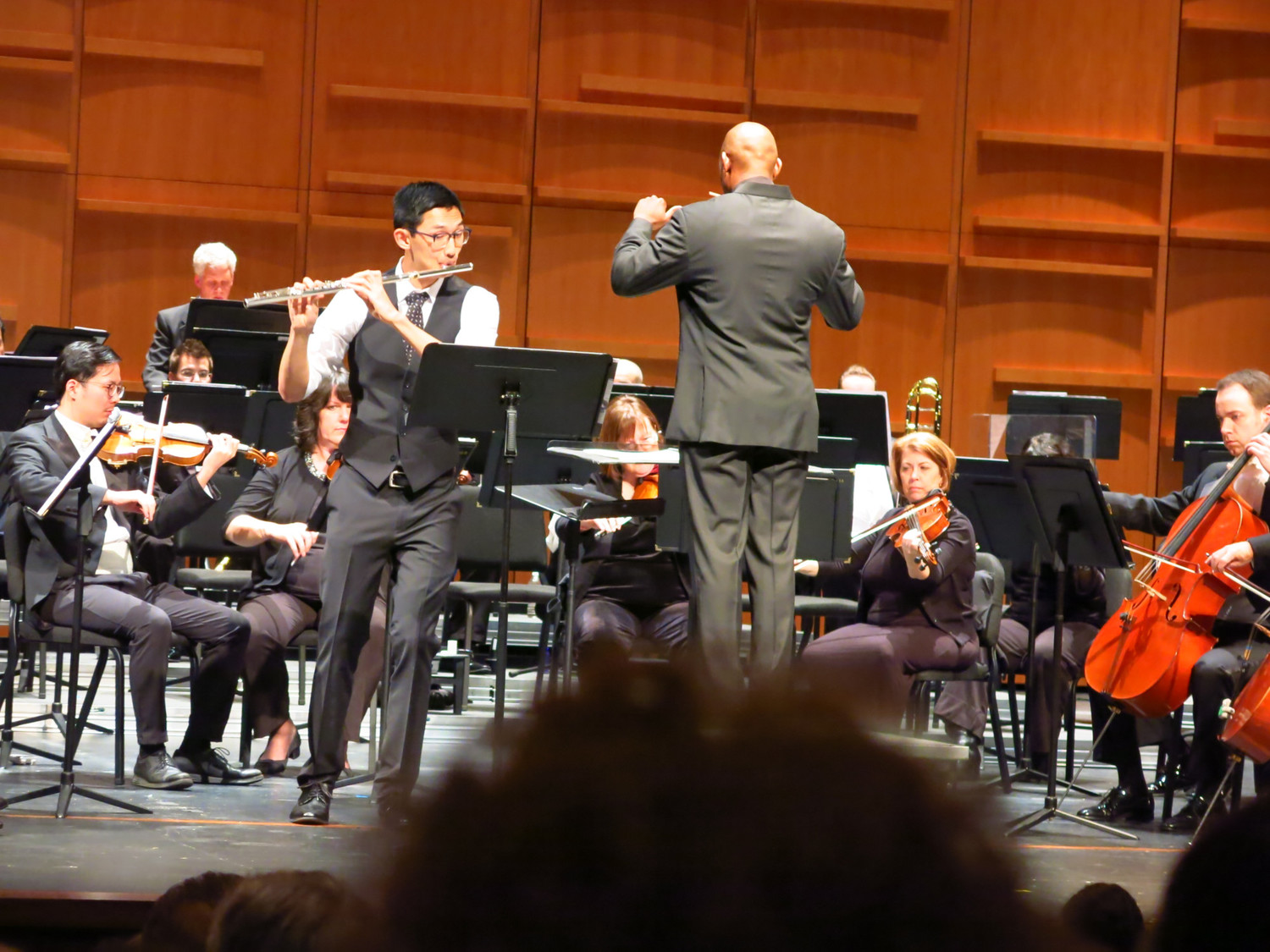Review: Cherokee Anguish Upstages SLEEPING BEAUTY in Symphony Concert

We've had a copious amount of Russian music from Charlotte Symphony this year. Rachmaninoff's Symphonic Dances and Rimsky-Korsakov's Scheherazade headlined the first two classics concerts of 2019, and Tchaikovsky's Sleeping Beauty suite is continuing the trend. Even after Symphony emerged from their annual retreat in the Belk Theater pit with Charlotte Ballet's production of Nutcracker, subscribers do not seem to tire of this steady Russian diet.
The presumption may be that we'll see better attendance if the featured piece is Russian rather than American, old-style rather than new. Sleeping Beauty wasn't as long as Michael Daugherty's Trail of Tears concerto or as new as Aaron Copland's more familiar Billy the Kid suite, which kicked off the evening. Nor was it played with the same verve at Knight Theater under the baton of guest conductor Joseph Young, who actually has educational, vocational and family ties in the Carolinas.
Principal flutist Victor Wang stepped downstage to play the solos in Daugherty's concerto, deftly flutter-tonguing, overblowing, and producing multiphonics and glissandos - upstaging the marquee ballet suite that followed after intermission. In the context of the forced Cherokee migration carried out by the U.S. Army in 1838-39, pursuant to Indian Removal Act of 1830, the chord-like multiphonics and glissandos sounded like laments or nostalgic reflections, the overblowing sounded somber and contemplative like a Japanese shakuhachi flute, and the flutter-tonguing had a range of emotional connotations, submission one moment and terror at other times.
There was so much more to admire in Wang's playing beyond the special effects, particularly in the lyrical middle movement "incantation" that followed the longer, more turbulent "where the wind blew free" section. You might wonder why the concluding "sun dance," starting off so lightly, becomes as turbulent as the opening movement. Daugherty gives us a moving explanation in his program notes, reminding us that the religious dance ceremony of the Plains Indians was banned for a full century by the U.S. government.
While Wang had a clear path, consistently giving voice to the soul and anguish of Native Americans, Young had a more jagged course steering the orchestra. The delicate early percussion at the start of the outer movements - xylophone, harp, and piano - was obviously consonant with the flute, but the drums sent different signals. In the opening "wind blew free" movement, the snares cued the Trail of Tears march, taking on the role of the Army tormentors, but in the closing "dance," the timpani were unmistakably tom-toms. Strings could also be mellow or suddenly abrasive as Young navigated this fascinating, bumpy trail.
Notwithstanding the timings provided in Symphony's program booklet, the Sleeping Beauty suite was actually the shortest piece on the program. But there's nothing at all sleepy about the opening episode of its opening movement. It should sound like we've been improbably dropped into the raucous section of Tchaikovsky's Romeo and Juliet fantasy overture where the composer simulates the strife between the Montagues and the Capulets. Instead of medieval Verona or ancient fairyland, the orchestra sounded more like contemporary Vegas - or a carryover of Daugherty's prairie.
When the music becalmed the brass bloomed, and the Tchaikovsky ballet style became recognizable, but rarely with the charm that Symphony radiates every December in Nutcracker. The grandeur of the Pas d'action didn't quite wake up, and though I love the eerie foreboding sound of the Puss and Boots sketch, this performance didn't deliver the predatory snap that should make it memorable. The shimmering magic of the "Panorama" section was mostly moribund until principal harpist Andrea Mumm Trammell gracefully soloed to close it out.
Symphony recovered its swagger to close the evening with the familiar Sleeping Beauty waltz, but this wasn't the sort of piece that Peter Ilyich intended to climax an evening of ballet, let alone an evening of orchestral music. A lead-off spot would have been more appropriate. As it turned out, Copland's Billy the Kid suite vied with Trail of Tears as the best performance on this night.
Amy Orsinger Whitehead ably took over the flute chair while Wang waited in the wings, leading a volley of wind solos sounding Copland's recurring "Open Prairie" theme, followed by principal clarinet Taylor Marino, principal oboe Hollis Ulaky, and French hornist Byron Johns. Pounding the timpani, acting principal Ariel Zaviezo Arriagada signaled the onset of the "Gun Battle," but this dark episode didn't eclipse the sunny impression made by Erinn Frechette, merrily playing the piccolo solo when we reached Copland's "Frontier Town."
With players of this caliber - and the zest that Young brought to this repertoire - I daresay that even Symphony's stodgy subscribers would have been better pleased by an All-American evening. Whether they would have attended is a different question.
Reader Reviews

Videos
